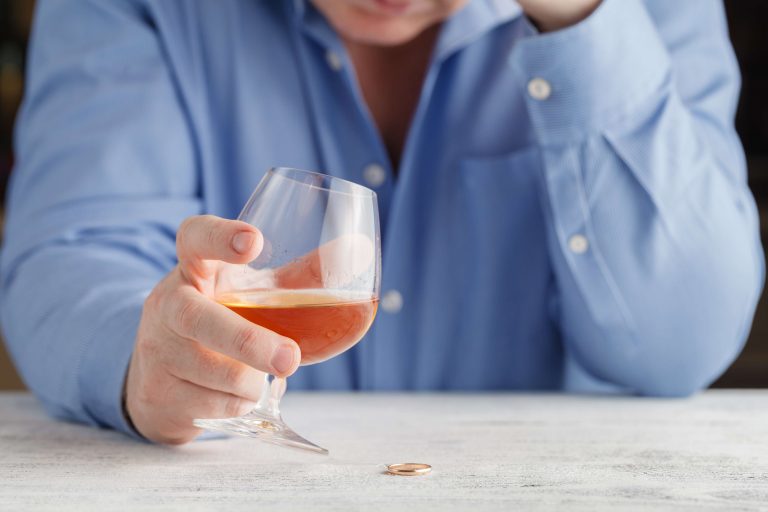Among the members of the site, those who had prior difficulty going off drugs expresshigh satisfaction with support for a much more gradual tapering method. They feel incontrol and more confident about their futures off the drugs.28,48 Occasionally Iget messages from people expressing gratitude, even for saving their lives. It is important to note that alcohol tapers are generally not recommended as the best way to stop using alcohol.

Alcohol Tapering Methods
Tapering off alcohol is a method of reducing your alcohol intake gradually. This process can help your body break its dependency on alcohol with minimal side effects. A doctor can supervise your tapering progress, helping you manage your cravings and prevent relapse.
Withdrawal symptoms may follow any drug dosage reduction
Our online health insurance verification system will estimate your in-network and out-of-network deductibles, coinsurance percentages and out-of-pocket maximums. Within 5 minutes, you’ll receive an email with these details – free of charge. Deciding to quit drinking and following through isn’t just about willpower.
When To Seek Medical Attention
- Each of these challenges requires a unique approach and often the support of professionals, loved ones and support groups.
- This lessens the severity of withdrawal symptoms, as there is not an abrupt or dramatic change.
- However, any more hawkish-than-expected rhetoric would rattle the markets.
- Withdrawal symptoms may begin within a few hours after the last drink and may last up to 48 to 72 hours.
- Because alcohol withdrawal symptoms can sometimes be unpredictable and may escalate quickly, having an on-site medical team that can quickly intervene is the safest way to quit heavy drinking.
- A standard (750 ml) bottle of wine at 12% alcohol contains 5 standard drinks.
Seeking help as early as possible during the withdrawal process is the best way to stay safe as you cleanse your body of alcohol. It can be tempting to just “rip off the Band-Aid” when getting sober, but tapering off alcohol is often much safer—and much less stressful. Rather than quitting drinking abruptly (or “cold turkey”), http://www.konsalter.ru/rb/res22096.htm many professionals recommend gradually reducing your drinking (or tapering) over time. This can give your body the chance to adjust, helping you avoid the worst of withdrawal symptoms. Although it is possible for some to quit drinking without any side effects, it leads to painful alcohol withdrawal symptoms for most.

For example, those who drink more heavily may need more time to taper than those who drink less alcohol. Further, if you start to develop alcohol withdrawal symptoms during the taper, your doctor may instruct you to pause or slow the taper as a result. http://ladaonline.ru/news/3194/h?PAGEN_1=907 These factors can make one person’s taper last longer than another person’s taper. The main downside of cold turkey is how unpleasant and risky it can be. If you drink heavily, alcohol withdrawal symptoms can be harsh, dangerous, and even fatal.
- It also lets you start working new habits and routines into your day to replace drinking, starting the transition.
- Central nervous system depressants are a class of drugs that includes several prescription medications like benzodiazepines, barbiturates, and sedative-hypnotics.
- Whether that’s watching TV, cooking dinner, cleaning the house, going for a walk, or taking a bath.
- Counting each drink you consume may seem simple, but all drinks are not created equal.
- Still, they may need to consider cutting back for other physical, mental, and social health reasons.

If that is, in fact, the case, and they are going to experience the symptoms of withdrawal anyway, then it might be more helpful for them to undergo a more streamlined and straightforward detox process. This should, of course, still be done under the care and supervision of a medical professional at a treatment center specializing in medical detoxification. Alcohol tapering is definitely possible, but the question of whether https://getdefault.com/weight-loss-and-control-during-rehab/ or not it works is not quite as straightforward. In the same way that everyone person is unique and their experience with addiction is going to be unique, the most effective method of recovery is also going to vary from person to person. Fortunately, deaths resulting from alcohol withdrawal are a rare occurrence. In order to fully recover, you can start your healing process by safely ridding yourself of alcohol.

Challenges of Tapering Off Alcohol
- Tapering or weaning means ramping down your alcohol use until you get to zero—or to a more moderate level of drinking that you prefer.
- If you’ve been drinking heavily for a long time and think you might experience withdrawal symptoms, it’s best to talk with a medical professional before you begin a taper.
- However, it should not cause someone to become stuck on a step, which would defeat the purpose of a taper.
- In Europe, major energy companies, including Shell and BP, are also set to report their quarterly results.
- This is because Delirium tremens is caused by hyperactivity in the nervous system, which is now without the depressant effects of alcohol and is instead going into overdrive.
There’s also more to learn after ridding yourself of alcohol. You can master the necessary life skills to maintain your sober lifestyle through treatment. A full continuum of care treating addiction and mental health through an evidence-based approach, relapse prevention, and holistic healing with beach activities. Alcohol withdrawal usually lasts for a few days, but some effects may linger for months. Symptoms are most severe around day 34, and the total process can last for 2 to 10 days.







